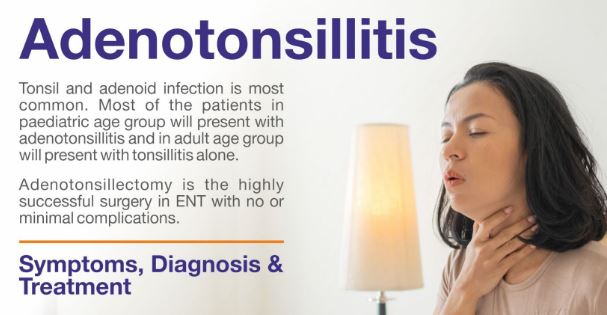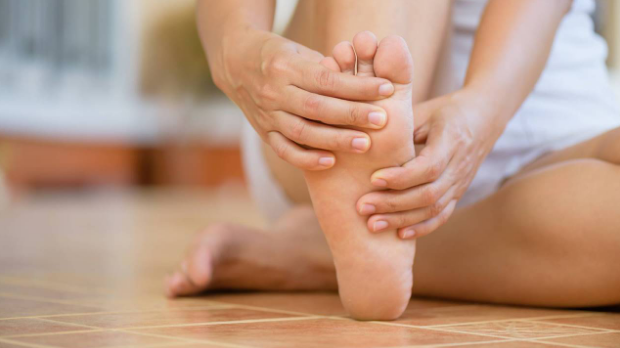Exploring Homeopathic Medicines for Diabetes Mellitus: A Supportive Approach:- In this article, we will emphasize Homeopathy Treatment For Diabetes. Diabetes Mellitus, commonly known as diabetes, is a chronic metabolic condition characterized by persistently high blood sugar levels. This condition stems from either insufficient insulin production by the pancreas or the body’s ineffective use of insulin. […]
Category: Blog
Your blog category
Gout
In this article, we will emphasize Homeopathic Treatment For Gout. Gout is a type of inflammatory arthritis characterized by the accumulation of uric acid in the blood, which can lead to severe joint pain. While it can affect any joint, the base of the great toe is most commonly involved. Normal uric acid levels in […]
Adenoids
In this article, we will discuss Adenoids Homeopathy Treatment. How to Protect Your Child from Adenoid Surgery with Homeopathic Remedies. If your child often has a blocked nose, breathes through their mouth, or snores while sleeping, it’s possible they may be dealing with enlarged adenoids. This condition predominantly affects children between the ages of 3 […]
Top 9 Homeopathy Medicines for Adenoids Treatment
Introduction In this article we will discuss Top 9 Homeopathy Medicines for Adenoids. Adenoids, the lymphatic tissue located at the back of the nasal passage, play a crucial role in keeping us healthy by trapping harmful bacteria and viruses. However, when they become enlarged, it can lead to breathing difficulties, snoring, and recurrent ear and […]
9 Top Homeopathy Medicine for PCOS Treatment
Aura Homeopathy Clinic: Unveiling the Resonance of Healing for PCOD in Women In This Article: Today we will discuss 9 Top Homeopathy Medicine for PCOS Treatment: A Comprehensive Guide Explore the effectiveness of homeopathy in treating PCOS with our detailed guide on the top remedies, backed by citations from renowned homeopathy experts. Introduction Introduction: Discovering […]
Top 5 Homeopathy Medicine For Diabetic Foot Ulcers
Explore Top 5 Homeopathy Medicine For Diabetic Foot Ulcers at Aura Homeopathy Clinic, India’s top homeopathy hospital. Book your online appointment today for a natural approach to healing. Homeopathic Solutions for Diabetic Foot Ulcers: A Natural Approach to Healing Diabetic foot ulcers, often stemming from uncontrolled sugar levels, are distressing outcomes due to elevated blood […]
5 Top Homoeopathic Medicine For Uric Acid
Discover Natural Relief: Homeopathic Solutions for Gout. In this topic we will discuss in detail 5 Top Homeopathic Medicine For Uric Acid. Gout, an excruciating form of arthritis, induces inflammation and intense joint pain. This discomfort arises from the accumulation of urate crystals within the affected joint, resulting from elevated uric acid levels in the […]
Tourette-Syndrome
A “tic” is an involuntary movement or vocalization that’s typically fast onset, brief, repetitive, conventional however non pulsing in character, often imitating normal behavior, usually occurring out of a background of normal activity. Tics are typically related to a prophetical sensation or “build up” sensation to perform the particular movement, and frequently are related to […]
Best Homeopathy medicine for firming and tightening sagging breasts
In this article we will be discussing Homeopathy treatment for firming and tightening sagging breasts. Homeopathy, known for its gentle yet effective treatment methods, offers hope and results. In the quest for natural beauty and wellness, many women seek solutions for firming and tightening sagging breasts, a common concern arising from factors like aging, weight […]
Best Homeopathy Doctor in Gurgaon
Are you Searching For the Best Homeopathy Doctor in Gurgaon? Your decision to consider alternative treatment may cause concern. Like what is Homeopathy? Where to get the Best Treatment, who is the Best Homeopathy Doctor in Gurgaon, Noida, Delhi, NCR India, etc. Your condition has already created uncertainty and you now need to be sure […]








